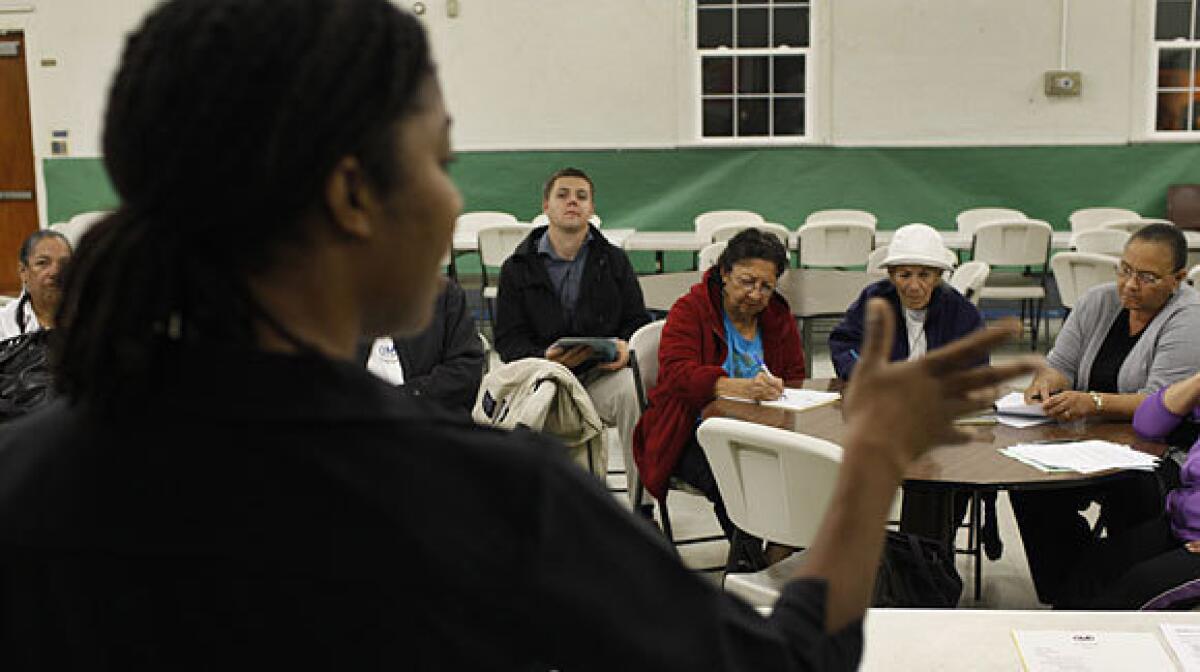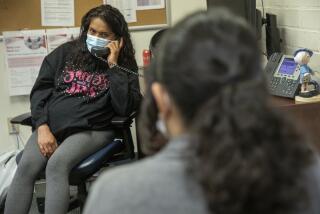Low-income California seniors to move into new managed care plan

In a major shift triggered by the national healthcare law, nearly half a million low-income California seniors and disabled patients will begin moving into a new managed care program this fall.
The patients, who receive both Medi-Cal and Medicare, are among the most costly in the state. Officials believe that the program, Cal MediConnect, will reduce spending and improve care by shifting the patients out of a fragmented system and into one that is more coordinated.
The state and the federal government signed an agreement Wednesday officially establishing a test program for the patients, known as dual eligibles.
“We believe it will transform the state’s healthcare system,” Health and Human Services Secretary Diana Dooley said.
Advocates, however, continue to worry that the transition could affect patients’ access to doctors and medications.
“We are concerned about how this is going to translate in the real world for beneficiaries,” said Kevin Prindiville, deputy director of the National Senior Citizens Law Center. “There is a lot of change happening very quickly.”
Deborah Doctor, legislative advocate for Disability Rights California, said many people will benefit from the transition. But she expressed concerns about whether the state or the health plans would be ready in time. She also said she wondered about the projected Medi-Cal savings, estimated to be just 1% in the first year.
“Why are we going ahead at this pace in California if the money savings are going to be so small?” she said.
Under managed care, health plans will be paid to coordinate all of a patient’s care rather than doctors being paid based on the number of services provided. Experts say this could reduce costs by helping more patients stay in their homes and reducing unnecessary trips to nursing homes and hospitals.
The state plans to begin notifying beneficiaries this summer and enrolling them in October. The state had originally planned to transition 800,000 dual eligibles, but officials said Wednesday that they would cap enrollment at 456,000 patients, including a maximum of 200,000 in L.A. County.
The project is planned to last three years, but state officials hope to continue beyond that and to expand the number of participants.
In addition to getting medical and mental health services, beneficiaries in the program will have access to dental and vision care and nonemergency transportation.
Under the agreement, beneficiaries will be able to opt out of the project for their Medicare services and will have other protections designed to ensure continuity of care.
Cal MediConnect is the fifth such project approved by the federal government as part of the federal healthcare overhaul, according to the Centers for Medicare & Medicaid Services. The project will take place in eight counties: Los Angeles, Orange, Riverside, San Bernardino, San Diego, San Mateo, Alameda and Santa Clara.
More to Read
Sign up for Essential California
The most important California stories and recommendations in your inbox every morning.
You may occasionally receive promotional content from the Los Angeles Times.










